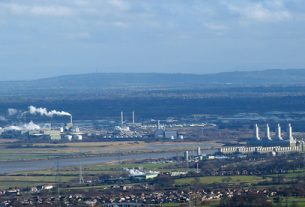Wages have increased by a record amount firing the fears of borrowers while giving pensioners hope of another big boost to their income.
Total pay – including bonuses such as the one-off payment to NHS staff – soared 8.2% In the three months to June, far higher than the 7.3% predicted by analysts and a whole percentage point higher than the rise recorded in the three months to May.
Figures by the Office for National Statistics (ONS) show regular pay (excluding bonuses) recorded a record rise of 7.8% in the three months to June, up from 7.5% in March – marking the highest annual growth rate since comparable records began in 2001, reports the Guardian.
While wages are rising, official figures show the number of jobs is shrinking with companies shedding workers in response to the UK’s economic slowdown. There are “clear signs that the labour market has continued to loosen, with an unexpected rise in unemployment, falling inactivity and declining employment,” reports the Financial Times.
The Guardian states a “rise in borrowing costs is likely” while the Telegraph reports that “major lenders…have slashed the interest rates on their mortgages” ahead of tomorrow’s (Wednesday) publication of the official inflation rate. The cut by all of six of the UK’s biggest lenders is “despite the expectation of further Bank Rate rises.”
The Bank of England interest rate is at a 15-year high on 5.25% and expected to rise to 6% by next spring.
“The Bank of England will have concerns over this morning’s wage growth and the impact on inflation,” said Nicholas Mendes of mortgage brokers John Charcol,
“Markets are now pricing in a Bank Rate peak of 6% which means we are certain to see a further rise of 0.25 percentage point in September regardless of the inflationary data that is due out tomorrow morning.”
As borrowers fret the consequences of rising wages on inflation and interest rates, pensioners are eying an above inflation boost to their income next year thanks to the earnings boost for those in work.
The i reports the state pension could be set to rise more than 8% as a result of the wage growth given it is governed by the “triple lock” which ensures state pensions rise by at least 2.5%, or inflation or earnings rises if they are higher. State pensions rose by a record 10.1% last year due to the UK’s inflation rate in September
If the wage rise continues into the next quarter – which is used to set the state pension – pensioners will be due to receive around £220 per week, up from £203.85.
The Treasury has been warned the rise will cost an extra £2 billion by former pensions ministers Sir Steve Webb, who said:” It seems very likely that the pension rise implied by the triple lock policy will be much higher than expected at the time of the March 2023 Budget.
“Although inflation is coming down, the rate of average earnings growth has been heading upwards and is likely to be the key factor in determining next year’s state pension rise. An extra £2 billion bill arising from higher than expected earnings growth seems quite plausible.”
Rishi Sunak, recently returned from his family holiday to California, repeated his “number one priority” is tackling inflation” and claimed there is “light at the end of the tunnel” for the cost of living crisis.




